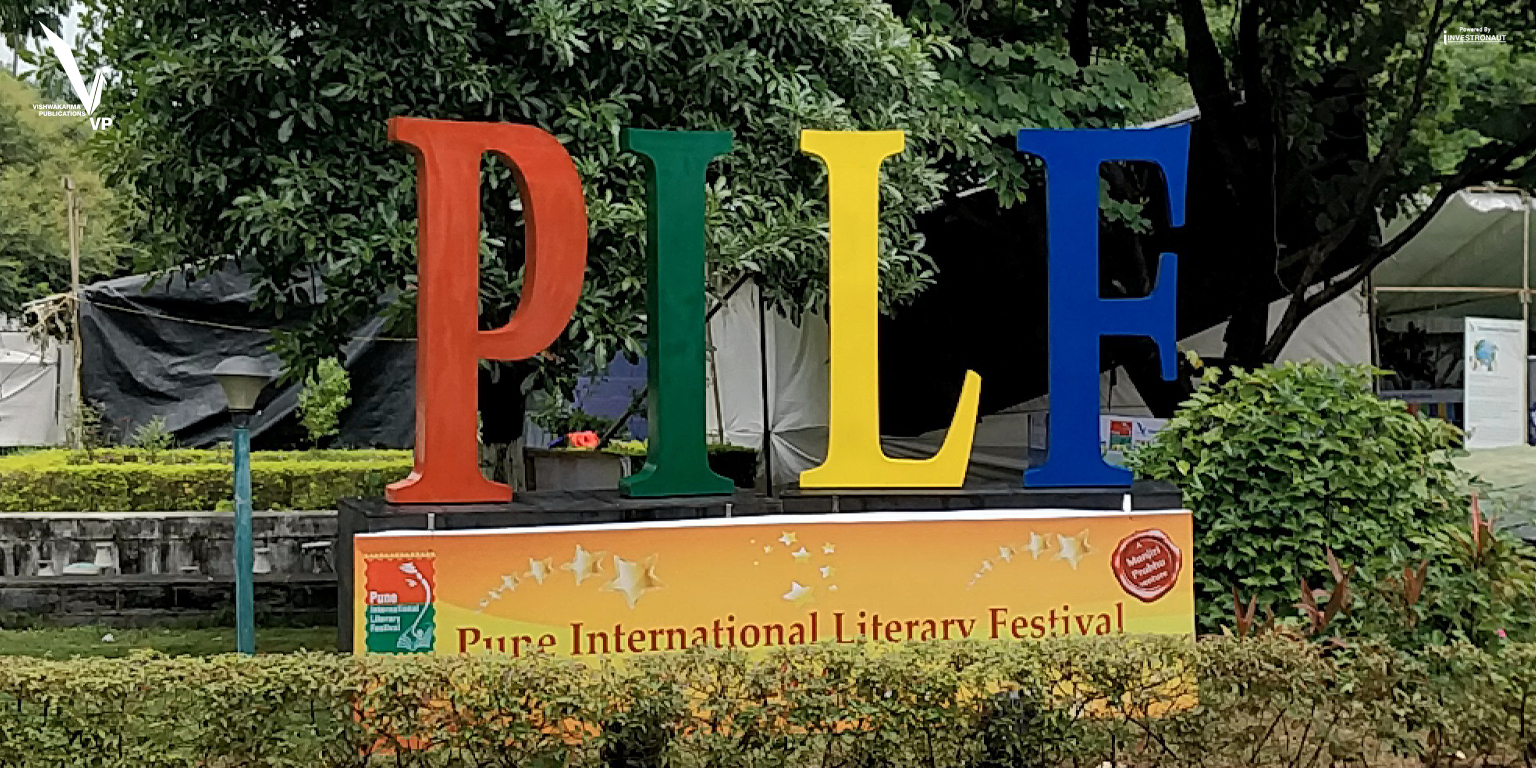In the Spotlight: A Look Back at Pune International Literary Festival 2019
“The recently concluded Pune International Literary Festival at YASHADA offered a platform for meaningful dialogues on contemporary India, books, politics and was a welcome change from a world that largely operates in binaries. From Javed Akhtar, Manu S. Pillai to Shashi Tharoor many celebrated names of the literary world made an appearance and enthralled the audience with their wit, humour, and knowledge. I pen down my thoughts as to why I enjoyed the literary festival.”
Polonius what are you reading my Lord? Words, words, and words.
Long years ago, Shakespeare testified to the power of the ‘word’ to intrigue and enchant even a mind as irresolute as Hamlet’s. Words preserve ideas and prevent them from descending into the crevices of forgotten history, and saves them for posterity. With this guiding principle, the 7th edition of the Pune International Literary Festival (PILF) 2019, in collaboration with Vishwakarma Publications as title sponsor, was held from 20th to 22nd September 2019 at YASHADA. The festival spanning over three days saw the participation of 175 esteemed speakers from India and abroad who conducted more than 100-panel discussions, lectures, workshops and book readings.
Renowned authors like Javed Akhtar, Shashi Tharoor, Manu Pillai, Devdutt Patnaik, R. Raj Rao, rubbed shoulders along with new and talented, authors. The festival is held every year in the spirit of celebrating literature, with the manifesto of congregating, under one roof, the producers and consumers of written and spoken word – the author and the reader, the Movers, and Shakers of the literary world – the publishers, and publishing agents. True to the legacy of its predecessors it was an event to behold and a resounding success. For me, #PILF stood out for upholding the democratic spirit and giving ample exposure to new writers.
The Democratic Spirit of the Festival
In times as troubled as these the success of #PILF is a great consolation. It vindicates the democratic spirit which modern civilization prides over, especially in our part of the world. Opinions were offered without fear of being contradicted, opinions were contested without the sting of bias or invective: positions were claimed with ease and challenged with equal grace. Consider the panel on Queerness in contemporary India where sparks flew as the panel dueled, each armed with a strong opinion and conviction. Yet, it did not degenerate into a farce as we are accustomed to on Prime Time Television debates. Interruptions were limited to reminiscences and references to literary works and objections were offered based on acknowledging scholarship. It was democracy in the truest sense where the objective is to persuade and influence opinion without the use of violence and browbeating. What a change it was from a world that only believe in black and white ignoring all shades of grey, binaries instead of plurality, ‘my way or the high way’ rather than all paths lead to the truth. For me, the greatest success of the festival lay in proclaiming and adhering to this democratic spirit.
Exposure to New Authors
PILF ensured that it does not just become a snobbish assembly of famous writers rather it gave equal representation to upcoming, lesser-known writers too. The literary festival proved to be a boom for newly published writers and their books sold like hotcakes. Most authors held the audience captive with readings from their books and riveting discussions of the intricacies of their craft and the nitty-gritty of writing. This naturally swelled their book sales as the audience clamored to get their hands on the books that piqued their curiosity and aroused their interest. Take for example Dr. Meeran Borwankar’s session where she launched her new book “Inspector Chougule” published by Vishwakarma Publications. It was followed by a conversation with the Commissioner of Pune, Dr. K Venkatesham and retired Captain C. Chitale. Such was the interest in the session that the large auditorium was filled within minutes and people made do with standing in the aisle and crammed into every nook and corner to hear the conversation. Dr. Borwankar’s anecdotes and stories left the audiences spellbound. More than 150 copies of the book were sold in less than an hour after the session.
The three-day literary extravaganza in the ‘Oxford of the East’ was a true celebration of ideas, literature, and a treat for book lovers. It made sure Punekars got the opportunity to see and listen to their favorite authors up close and directed them in their quest for new ones.
The author of this article, Richa Singh is a content writer with Investronaut.

